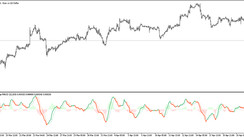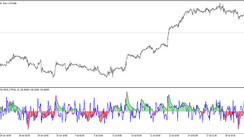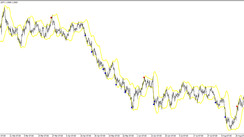What's the difference?
There are significant and important differences between an exchange and a broker. Choosing the right one for your trading journey is vital to the success of your trades. This is especially true when trading cryptocurrencies. It can be a difficult decision to make for any trader. In this article we look at the differences between the two.
What is an Exchange?
An exchange is a marketplace where securities, commodities, derivatives and other financial instruments are traded. The core function of an exchange is to ensure fair and orderly trading and the efficient dissemination of price information for any securities trading on that exchange. Exchanges give companies, governments, and other groups a platform from which to sell securities to the investing public.
When trading on an exchange, the trader physically acquires ownership of the assets they invest in.
What is a Broker?
A broker is an individual or firm that acts as an intermediary between an investor and a securities exchange. Because securities exchanges only accept orders from individuals or firms who are members of that exchange, individual traders and investors need the services of exchange members. Brokers provide that service and are compensated in various ways, either through commissions, fees or through being paid by the exchange itself.
When trading with a broker, the trader does not physically own the asset but is rather making a speculation on the movement, short or long, of said asset.
What are the Differences Between an Exchange and a Broker?
Due to the fundamental ways both platforms operate, naturally they offer different features with their services. Let’s take a look at some:
- Trading CFDs vs Real Assets
Exchanges that offer real assets are unfortunately often targeted by hackers trying to steal large sums of cryptocurrencies belonging to the exchange's investors. Trading with a Broker however, offers a lighter experience as you are not in custody of the real asset but rather a contract for difference or CFD, which is under little to no threat of being hacked at all.
- Fees and Commissions
Due to the nature of operation, exchanges tend to charge higher fees and add commissions onto trades as they are dealing with real assets. In this sense, Brokers are often able to charge lower commissions or fees due to the CFD aspect. CedarFX is a green broker offering 0% commission accounts.
- Trading Tools Available
You may find that exchanges are often limited in terms of what tools and features they can offer. With a CFD Broker you are afforded a wide selection of indicators and sophisticated tracking tools as the nature of their business is trade-oriented. Other features include leverage trading, risk management and technical analysis.
- Range of Assets to Trade on
If you sign up with a smaller exchange you could be limited with the selection of assets they offer. Larger exchanges offer a broad range of currencies however, it is the responsibility of the trader to investigate each project thoroughly before investing. Brokers may offer a more select group of cryptocurrencies to trade but these are usually market-tested with proven track records.
While both platforms offer unique selling points and it is possible to be proficient on either, when it comes to trading cryptocurrencies, Brokers tend to offer a more advanced experience, with varying options to increase profits, save on fees, track your trades and leverage your funds.
The 0% commission fees and leverage of up to 1:500, make CedarFX a prime example of a reliable CFD Broker. CedarFX offers you over 190+ instruments including cryptocurrencies, indices, commodities, and stocks. Additionally, you have 24/7 customer support, tight spreads, and the option to trade with a 0% commissions account or, an eco-account that offsets Co2 emission as you trade.
To open an account click here.





